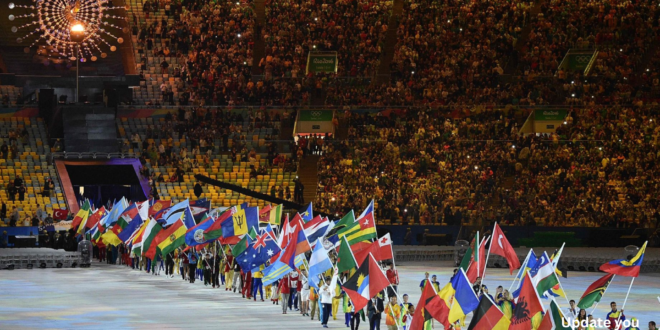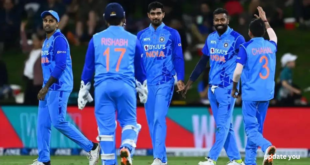As you tune in to watch the world’s greatest athletes compete on the Olympic stage, you may not realize the controversies and scandals lurking behind the spectacle. The Olympic Games have long been a showcase of athletic excellence, but they’ve also been marred by political disputes, doping allegations, and corruption. From the 1936 Berlin Olympics under Nazi rule to more recent bribery scandals, the Games have weathered their share of storms. This article will examine some of the most notorious controversies in Olympic history, shedding light on the darker side of this celebrated international event. Prepare to see the Olympics in a new light as we explore its checkered past.
Brief History of the Olympic Games
Ancient Origins
The Olympic Games have a rich history dating back to ancient Greece. Originally held as a religious festival and athletic competition, these games took place every four years in Olympia. Athletes from various Greek city-states would gather to compete in events such as running, wrestling, and chariot racing. The ancient Olympics continued for nearly 12 centuries before being abolished in the 4th century CE.
Modern Revival
The modern Olympic movement was revived in 1896, thanks to the efforts of French educator Baron Pierre de Coubertin. The first modern Olympic Games were held in Athens, Greece, marking the beginning of a new era in international sports. The International Olympic Committee (IOC) was formed to oversee the organization and management of the Games, establishing a structure that continues to this day.
Evolution and Challenges
As the Olympics grew in popularity and scale, they faced numerous challenges. Political pressures and nationalism often influenced the Games, leading to controversies and boycotts. For example, the 1980 Moscow Olympics were heavily boycotted by 65 nations, including the United States, in protest of the Soviet invasion of Afghanistan. The Olympics have also grappled with issues of commercialization, doping scandals, and corruption allegations, reflecting the complex interplay between sports, politics, and economics in the modern world.
Notable Scandals at the Summer Olympics The Olympic Games, while celebrated for their spirit of unity and athletic excellence, have also been marred by controversies that have shocked the world. These scandals have ranged from doping allegations to political protests, leaving indelible marks on Olympic history.
Doping Scandals olympics
One of the most infamous Olympic scandals occurred at the 1988 Seoul Olympics, when Canadian sprinter Ben Johnson was stripped of his gold medal in the 100m race after testing positive for a banned steroid. This incident brought the issue of performance-enhancing drugs in sports to the forefront of public consciousness. Years later, the 2000 Sydney Olympics saw American track star Marion Jones lose her five Olympic medals due to doping violations, further highlighting the persistent problem of cheating in sports.
Political Controversies
The Olympics have often been a stage for political statements and protests. The 1936 Berlin Olympics were controversially held during the rise of Nazi Germany, with Hitler attempting to use the Games as propaganda for Aryan superiority. However, African American athlete Jesse Owens famously won four gold medals, undermining these racist ideologies. More recently, the 2022 Beijing Winter Olympics faced a significant diplomatic boycott by several countries in response to alleged human rights abuses in China, drawing global attention to these concerns.
Athlete Misconduct
In 2016, the Rio Olympics were rocked by a scandal involving U.S. swimmer Ryan Lochte and his teammates. They falsely claimed to have been robbed at gunpoint, when in reality, they had vandalized a gas station. This incident not only tarnished the athletes’ reputations but also overshadowed many of the sporting achievements at the Games.
Controversies at the Winter Olympic Games
Political and Ethical Dilemmas
The Winter Olympic Games, while celebrated for athletic excellence, have not been immune to controversy. Political tensions have often overshadowed the spirit of competition. For instance, the 1980 Winter Olympics in Lake Placid saw Taiwan’s non-participation due to China’s recognition issues. More recently, the 2022 Beijing Winter Olympics faced diplomatic boycotts from several countries, citing human rights concerns.
Doping Scandals and Judging Controversies
The integrity of competition has been repeatedly challenged by doping scandals. The 2014 Sochi Winter Olympics were marred by revelations of a state-sponsored Russian doping program, leading to Russia’s ban from the 2018 PyeongChang Games. Judging controversies have also tainted events, as seen in the 2002 Salt Lake City figure skating scandal, where two gold medals were ultimately awarded in pairs skating due to alleged collusion among judges.
Environmental and Safety Concerns olympics
Winter Games have faced criticism for their environmental impact and athlete safety. The 1964 Innsbruck Olympics tragically saw the death of a young Australian skier during training on a hazardous course. More recently, insufficient snowfall and the use of artificial snow have raised questions about sustainability and the suitability of certain locations for hosting the Winter Games.
Steps Taken to Prevent Cheating at the Olympics
Zero-Tolerance Policy and Independent Oversight
The International Olympic Committee (IOC) has established a zero-tolerance policy to combat cheating and hold accountable anyone responsible for using or providing doping products. To ensure impartiality, the IOC has delegated key anti-doping responsibilities to independent bodies. Since 2016, decisions on alleged anti-doping rule violations during the Games are made by the Anti-Doping Division of the Court of Arbitration for Sport (CAS), an independent entity.
Preventing Competition Manipulation
The IOC takes a multi-faceted approach to prevent match-fixing and other forms of competition manipulation. In 2017, they established the Olympic Movement Unit on the Prevention of the Manipulation of Competitions (OM Unit PMC) to oversee the implementation of a comprehensive code of conduct. This unit supports stakeholders through regulation, awareness-raising, and intelligence gathering.
Athlete Education and Reporting Mechanisms olympics
A crucial aspect of prevention is educating athletes and officials about the rules and consequences of cheating. Key guidelines include never betting on your own sport, always performing to the best of your ability, and reporting any suspicious activities. The IOC has established confidential reporting channels, such as the Integrity Hotline, to encourage individuals to come forward with information about potential violations.
The Future of the Olympic Games
Evolving Challenges and Opportunities olympics
The Olympic Games face a complex future, balancing tradition with the need for innovation. According to a recent paper, the Olympic Movement must analyze the relevance of Pierre de Coubertin’s 19th-century ideals in today’s world. A key focus is increasing social and educational responsibility towards athletes, including developing training on Olympic values.
Addressing Integrity Concerns olympics
Maintaining the integrity of the Games remains paramount. The IOC has implemented a zero-tolerance policy to combat doping, working closely with the World Anti-Doping Agency and the International Testing Agency. Additionally, efforts to prevent competition manipulation have intensified, with the establishment of the Olympic Movement Unit on the Prevention of the Manipulation of Competitions in 2017.
Embracing Technological Advancements olympics
Technology will play an increasingly significant role in the Olympics’ future. The creation of Olympic Esports Games signals a shift towards embracing digital sports. This move could potentially attract younger audiences and open new avenues for athlete participation and fan engagement.
Navigating Global Politics olympics
The Olympics’ future will inevitably be shaped by global political dynamics. Recent controversies surrounding the participation of athletes from certain countries highlight the delicate balance the IOC must maintain between political neutrality and upholding Olympic values. The Games’ ability to unite the world through sport will continue to be tested and redefined in the coming years.
Conclusion
As you’ve seen, the Olympic Games have faced their share of controversies and scandals throughout history. From doping and bribery to political protests and judging disputes, these issues have at times overshadowed the athletic achievements. However, the Olympics continue to captivate global audiences and inspire athletes to reach new heights. While organizers must remain vigilant in addressing ethical concerns, the Games endure as a celebration of human potential and international unity. As you watch future Olympics, consider both the triumphs and the challenges that shape this storied event. The Olympic spirit perseveres, reminding us of sport’s power to bring people together across borders and cultures.
 Update
Update




